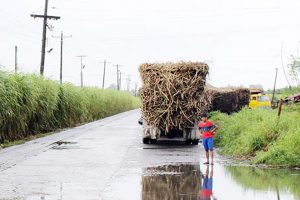THE DEPARTMENT of Agriculture (DA) said Monday it is now studying the possibility of a suggested retail price (SRP) scheme for sugar, as the price of the commodity continues to rise.
“We have set a stakeholders meeting to discuss it. It will start with a small group of stakeholders and eventually, we will also ask the Sugar Regulatory Administration,” Agriculture Undersecretary Kristine Y. Evangelista told reporters after department officials met with President and Agriculture Secretary Ferdinand R. Marcos, Jr.
“(To) come up with an SRP, based on the process, there should be a consultation,” she said.
The average retail price of refined sugar in wet markets was P87.50 per kilo as of July 8, according to the Department of Agriculture. The price was as high as P90 in some markets.
The average price of raw sugar in wet markets, meanwhile, was P66.86 per kilo.
The DA report on sugar prices has yet to be updated, but consumers have been reporting that prices have hit P100.
The United Sugar Producers Federation has blamed the rising prices on “manipulation and hoarding,” noting that the supply of sugar is ample.
Mr. Marcos has promised to boost domestic food production and limit imports as much as possible.
Ms. Evangelista said the President also called for a “thorough assessment” of the DA’s programs with a view towards planning for measures “increasing production and making agricultural commodities affordable.”
“We have to see which (of the DA’s programs) actually work, which one has to be tweaked and which one needs further consultation with the stakeholders,” she said.
Ms. Evangelista said the officials at the meeting also reported on the market for vegetables and livestock.
“We didn’t concentrate on one commodity,” she said. “If we’re talking about food security, that does not involve only rice.”
STUNTED
Fast-food chains have reported shortages in their chicken products because the raw materials available do not meet their size and quality standards.
Ms. Evangelista said the supply of chicken is ample, noting that the restaurants’ concerns center on quality because the chicken available is “stunted.”
This month, United Broiler Raisers’ Association president Elias Jose Inciong said chickens for public consumption were not meeting the weight standards set by the market.
He blamed the weight issue on the low quality of feed. “When you compare it to past years, the condition of chickens is very poor, precisely because the raw materials for feed (are) of relatively low quality,” he told ONE News PH.
Ms. Evangelista said the DA will seek to identify optimal production areas for goods in high demand and ensure that “products are sold at a good price.”
